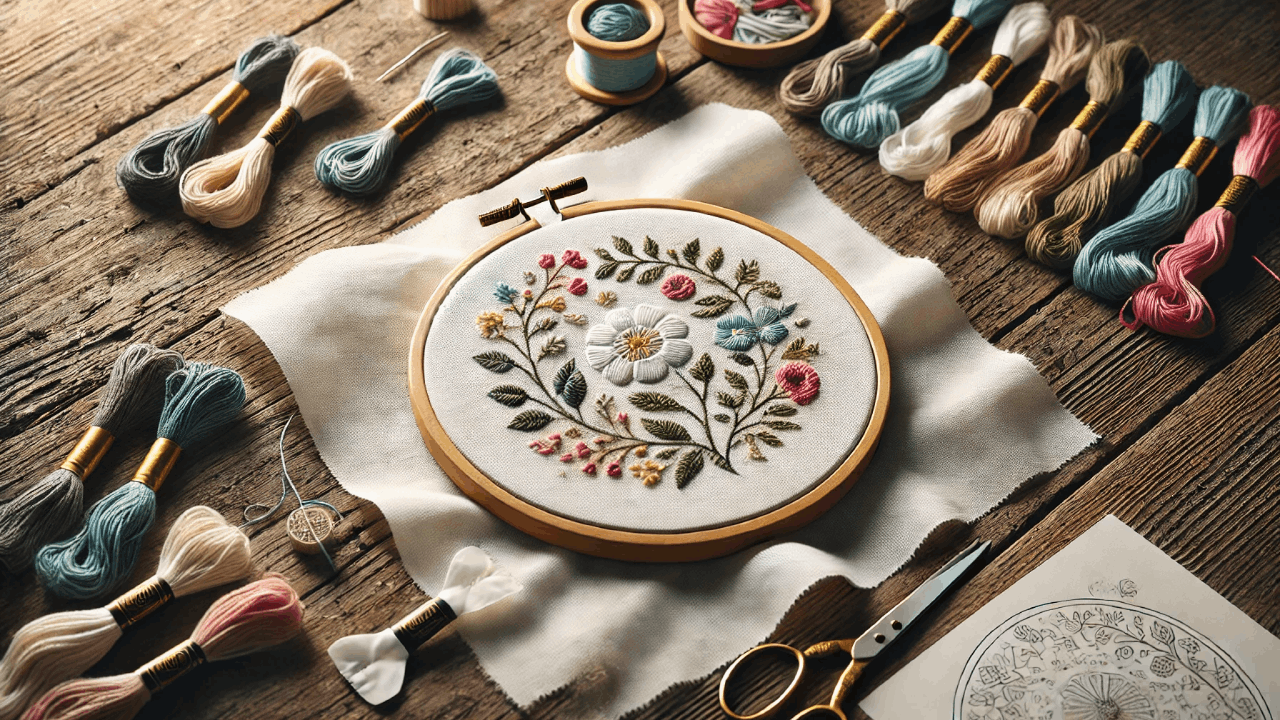The Unsung Hero of Embroidery: Why Machine Embroidery Stabilizer Matters

Strong 8k brings an ultra-HD IPTV experience to your living room and your pocket.
In the world of machine embroidery, most people focus on the obvious — the design, the thread, the fabric, and the machine. But one of the most critical elements that separates flawless embroidery from frustrating failures is often invisible in the final product: the machine embroidery stabilizer.
This hidden hero provides structure, prevents distortion, and supports every single stitch. If you've ever had puckering, uneven stitching, or thread breaks, chances are the stabilizer was to blame — or more accurately, the wrong one was used. Let’s explore how to get it right and make stabilizers your embroidery superpower.
What Does a Stabilizer Actually Do?
Imagine trying to draw on a balloon versus a sheet of paper. One stretches and moves, while the other stays firm. The same principle applies to fabric during embroidery. Without a stabilizer, fabric moves with every jab of the needle, which leads to warping, shifting, or uneven stitching.
A machine embroidery stabilizer keeps your fabric steady, supports intricate designs, and absorbs tension from high-speed stitching. It works behind the scenes to ensure every detail of your embroidery looks exactly how you envisioned it.
The Three Main Categories of Stabilizers
There are many types of stabilizers, but most fall into one of three categories:
1. Cut-Away Stabilizers
These are meant to stay with the fabric forever. Once your stitching is done, you trim away the excess, but a layer remains under the design to provide lasting support.
Best for: Stretchy fabrics, performance wear, and knits
Pros: Offers permanent strength, even after multiple washes
Cons: Can feel stiff if used too heavily
2. Tear-Away Stabilizers
Designed for temporary support, tear-away stabilizers can be ripped off easily after stitching.
Best for: Woven or non-stretch fabrics like cotton or denim
Pros: Easy cleanup, great for low-stitch-count designs
Cons: Less durable for dense or complex designs
3. Water-Soluble Stabilizers
These dissolve in water, leaving no trace behind. They are ideal when you don’t want any visible backing, or when stitching on tricky fabrics like towels or mesh.
Best for: Lace, freestanding embroidery, and delicate fabrics
Pros: Completely disappears after washing
Cons: Can require soaking, not great for humid environments
Specialized Stabilizers for Unique Projects
There are also fusible, heat-away, and sticky-back stabilizers for special cases. Fusible options bond with fabric using heat, while sticky-back varieties allow you to position fabrics without hooping. These are especially helpful for small or awkward items like cuffs, collars, or socks.
Matching Stabilizer to Fabric
Here’s a simple guide to help pair fabric with the right stabilizer:
Fabric Type Recommended Stabilizer
Jersey or Spandex Medium cut-away
Cotton or Canvas Tear-away
Velvet or Towels Water-soluble topper + tear-away
Sheer/Organza Water-soluble or soft cut-away
Leather/Vinyl Adhesive stabilizer
Choosing the wrong stabilizer can ruin your entire piece — so this step deserves time and care.
Pro Tips to Maximize Your Results
Don’t overstabilize. Too many layers can cause thread breaks or stiff results.
Float when needed. Delicate fabrics can be floated over hooped stabilizer instead of being hooped directly.
Use toppers wisely. On textured fabrics, a water-soluble topper helps keep stitches on the surface.
Always test. A 2-minute test stitch can save hours of rework later.
Conclusion
Embroidery is part art, part engineering. And while the threads and patterns grab the spotlight, the machine embroidery stabilizer is what makes it all possible behind the scenes. It’s the difference between professional-quality embroidery and a project that falls apart after one wash.
So next time you prep your hoop, don’t just grab whatever stabilizer is nearby. Choose wisely, and let your designs shine — supported by the unsung hero of the craft.
A platform where you'll get embroidery designs and knowledge about embroidery.
Visit now: Stitch Digitizer
Note: IndiBlogHub features both user-submitted and editorial content. We do not verify third-party contributions. Read our Disclaimer and Privacy Policyfor details.


